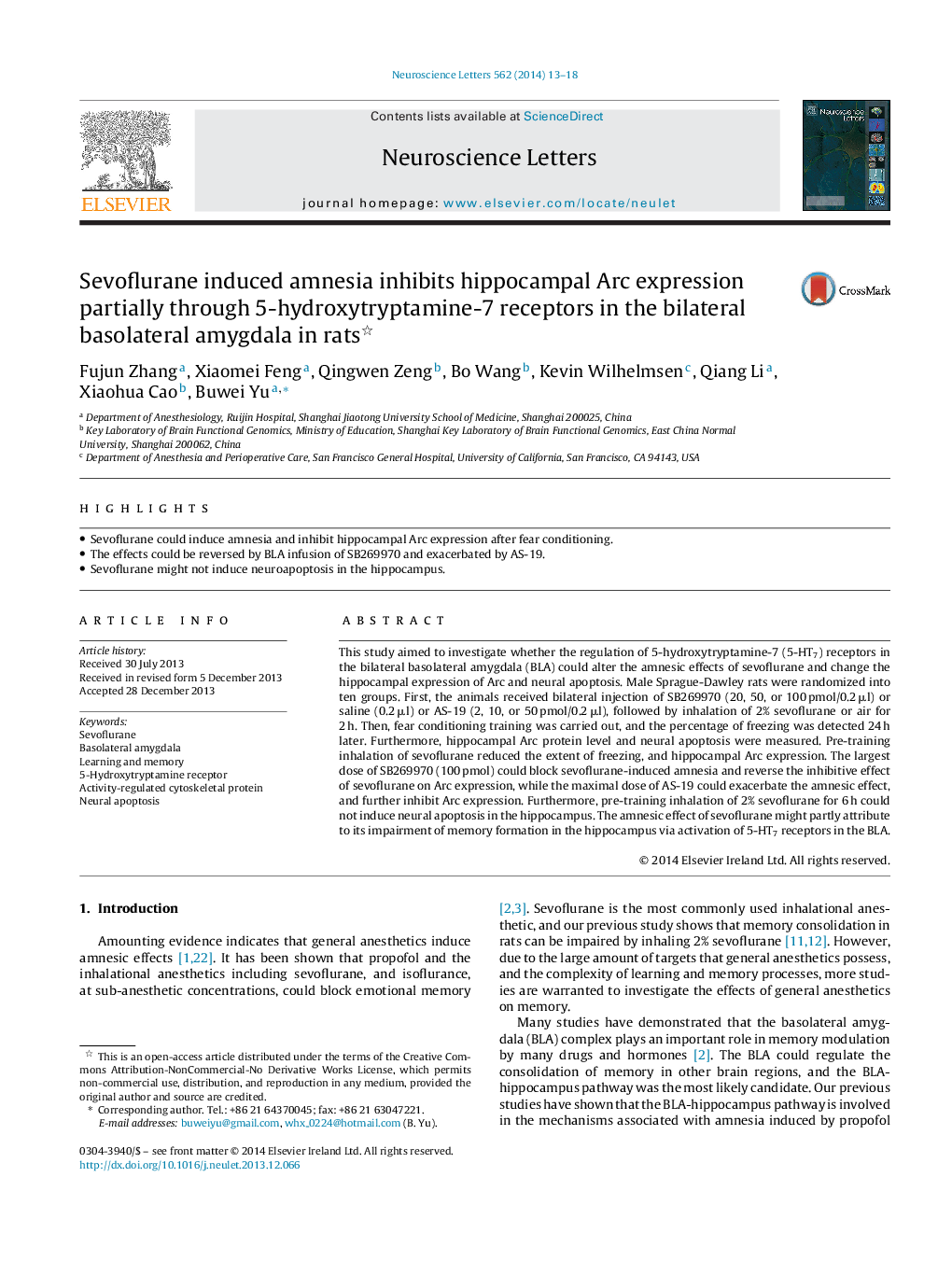| Article ID | Journal | Published Year | Pages | File Type |
|---|---|---|---|---|
| 4343816 | Neuroscience Letters | 2014 | 6 Pages |
•Sevoflurane could induce amnesia and inhibit hippocampal Arc expression after fear conditioning.•The effects could be reversed by BLA infusion of SB269970 and exacerbated by AS-19.•Sevoflurane might not induce neuroapoptosis in the hippocampus.
This study aimed to investigate whether the regulation of 5-hydroxytryptamine-7 (5-HT7) receptors in the bilateral basolateral amygdala (BLA) could alter the amnesic effects of sevoflurane and change the hippocampal expression of Arc and neural apoptosis. Male Sprague-Dawley rats were randomized into ten groups. First, the animals received bilateral injection of SB269970 (20, 50, or 100 pmol/0.2 μl) or saline (0.2 μl) or AS-19 (2, 10, or 50 pmol/0.2 μl), followed by inhalation of 2% sevoflurane or air for 2 h. Then, fear conditioning training was carried out, and the percentage of freezing was detected 24 h later. Furthermore, hippocampal Arc protein level and neural apoptosis were measured. Pre-training inhalation of sevoflurane reduced the extent of freezing, and hippocampal Arc expression. The largest dose of SB269970 (100 pmol) could block sevoflurane-induced amnesia and reverse the inhibitive effect of sevoflurane on Arc expression, while the maximal dose of AS-19 could exacerbate the amnesic effect, and further inhibit Arc expression. Furthermore, pre-training inhalation of 2% sevoflurane for 6 h could not induce neural apoptosis in the hippocampus. The amnesic effect of sevoflurane might partly attribute to its impairment of memory formation in the hippocampus via activation of 5-HT7 receptors in the BLA.
